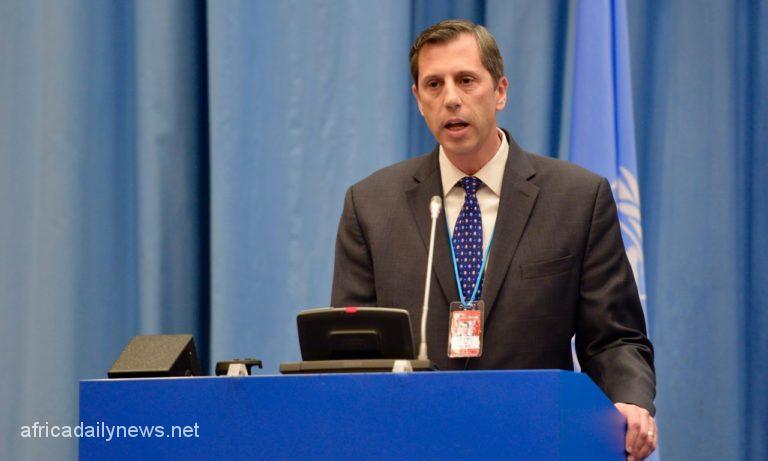The Government of the United States of America (USA) has described corruption as a cancer that is spreading beyond national and regional borders that would require very deliberate and concerted joint efforts by countries of the world including international agencies to combat.
The Principal Deputy Assistant Secretary in the Bureau of International Narcotics and Law Enforcement Affairs at the U.S. State Department, James Walsh, pointed this out in a statement.
According to him, corruption wherever it exists is an enabler of all forms of criminality, particularly transnational crime.
Walsh asserted that since corruption impedes investment, stunts economic growth, hampers government services and allows for criminality to flourish, the United States has started leveraging on diplomatic and foreign assistance tools to support preventative measures and criminal justice responses to promote the enforcement of international anti-corruption obligations, and to strengthen domestic anti-corruption laws, institutions and regulations.
Speaking at a Foreign Press Centers’ Anti-Corruption Virtual Reporting Tour, Walsh disclosed that that the President Joe Biden administration has not only made the fight against corruption a national security priority, but is beginning to partner with international organisations, governments, civil society and the private sector to checkmate the menace of corruption.
His words; ‘As I noted earlier, we are increasing our focus on the transnational dimensions of corruption. Through the multilaterally-supported Global Anti-Corruption Consortium, the Bureau of Democracy, Human Rights and Labor, known as DRL, is substantially scaling up support to strengthen collaboration between investigative journalists and civil society to expose transnational corruption, drive policy reforms, and increase accountability for corrupt actors.
‘Additionally, the department, in partnership with the Departments of Treasury and Justice, launched a Democracies Against Safe Havens Initiative, or DASH, at the Summit for Democracy. This initiative will work to build partner-government capacity to deny corrupt actors the ability to hide ill-gotten gains, to encourage like-minded partners to adopt anti-corruption sanctions and visa restriction regimes and to detect and disrupt complex corruption schemes,” he said.
Other initiatives, he said, included the introduction and support for reforms to make information about the true ownership of legal entities more transparent and accessible to law enforcement.
Speaking on the topic, ‘How U.S Agencies are Coordinating Efforts to Fight Corruption,’ the Principal Deputy Assistant Secretary stated that the United States has also advanced effective implementation of its international asset recovery obligations through transparent and accountable returns of proceeds of crime, adding that while the country has targeted over $3.4 billion in corruption proceeds, it has “confiscated over $1.7 billion of these assets and returned – and assisted in the return of over $1.6 billion to victim countries.
‘Now these are funds taken out of the hands of criminals and kleptocrats, and they go back to these countries to support the schools, roads and hospitals
that they need”.
Also speaking at the event, the Executive Director of USAID’s Anti-Corruption Task Force, Shannon Green, pointed out that when money gets siphoned off through shady procurements, roads and schools do not get built.
‘When public officials are bribed to turn a blind eye to poaching or pollution, local economies get destroyed and the soil and groundwater on which those communities rely gets spoiled and become unusable,’ she said.
Green disclosed that USAID is now prioritizing the fight against corruption because it weakens democracy and subverts the entire notion that government is meant to make decisions and to work on behalf of the public good.
According to her, when candidates in an election are bankrolled by foreign corrupt interests and democratic institutions captured by kleptocrats, citizens lose faith in their government and increasingly in democracy itself.
AFRICA DAILY NEWS, NEW YORK










